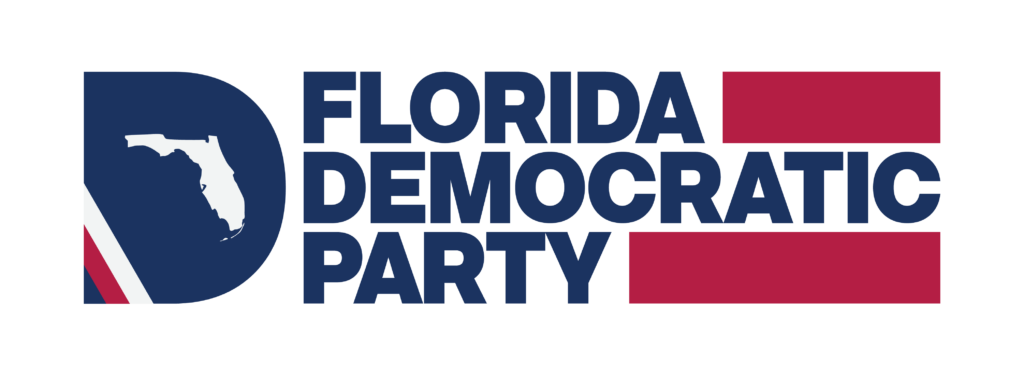In the News
As EU Plans Tariffs on Florida OJ, Putnam Backs Donald Trump’s Trade War


As EU Plans Tariffs on Florida OJ, Putnam Backs Donald Trump’s Trade War
Putnam Admits That Trump’s Tariffs Could Be A Disaster for Florida But Says He Supports Them Anyway
Adam Putnam has officially sold his soul to Donald Trump.
In an interview this week, Putnam came out in support of Donald Trump’s tariffs on aluminum and steel — despite admitting that they will hurt Florida’s citrus industry. Putnam told the Ledger that he supports Trump’s new tariffs even if they have a negative impact on Florida:
“I worry that agricultural commodities in general will be targeted. Orange juice has been on the list in the past,” he said. “In any trade war, I worry about American agriculture being targeted for retaliatory tariffs.” Putnam added it is too soon to judge whether Trump’s trade policies would lead to an international trade war. But he said he supports those policies, particularly with regards to current talks with Canada and Mexico about changing or amending NAFTA.
This afternoon, the President is expected to authorize new tariffs on aluminum and steel — and in the process launch a global trade war. The European Union has already announced that it will retaliate against the new tariffs by raising import duties on Florida orange juice. And according to the Tax Foundation, the tariffs are expected to cost Florida businesses $524 million.
“The fact that Florida’s Agriculture Commissioner is actively supporting Donald Trump’s trade war instead of defending Florida’s citrus industry is insane. Adam Putnam literally has one job — support Florida agriculture — and he’s choosing not to do it in order to show fealty to Donald Trump,” said FDP spokesperson Kevin Donohoe. “By backing these new tariffs, Adam Putnam is making clear that he rather see Florida agriculture jobs destroyed than stand up to Donald Trump.”
PLANT CITY – Florida Agriculture Commissioner Adam Putnam, a Republican candidate for governor, unleashed his inner Trump at Monday’s breakfast for strawberry growers.
The No. 1 problem facing Florida agriculture is not weather, pests, diseases, costs, farm prices or many other challenges of running a profitable business in Florida, Putnam told about 250 people at the Farm Credit of Central Florida Strawberry Salute Breakfast.
“Our biggest enemy is not Mother Nature. Our biggest enemy is bad trade policy,” he said during a roughly 15-minute speech. “It’s hard to compete with a global trade policy that cuts you off at the knees. A strawberry farmer can deal with one bad year, but not when it turns into five bad years in a row because of Mexican imports. That’s what’s scary, and that’s what threatens Florida agriculture.”
The speech came a week after President Donald Trump, announced he would impose a 25 percent tariff on imported steel and 10 percent on aluminum imports.
Strawberry growing in Mexico has expanded exponentially in the past decade, often with financial support from U.S. companies such as California-based Driscoll’s.
Because Mexico shares the same strawberry-growing season as Florida – from late November to spring – Mexican berries compete directly with Florida’s in the prime East Coast markets. And Mexican strawberries usually enjoy a price advantage because of lower production costs.
If Putnam is looking for a trade war over agriculture, however, it may come many months before he puts his hand on a Bible to take the gubernatorial oath, if that happens.
Officials in Canada and Europe have raised the possibility of imposing retaliatory tariffs on U.S. products if Trump goes through with the steel and aluminum tariffs. One target mentioned frequently is U.S. agriculture exports, including orange juice from Florida, which supplies most of the OJ consumed in the U.S.
Canada, the No. 1 exporter of steel and aluminum to the U.S., is the top export market for U.S. orange juice, accounting for 49 percent of all OJ exports in 2017, according to the Florida Department of Citrus. Europe was the second largest market at 25 percent of all U.S. orange juice exports.
In an interview with The Ledger after his speech, Putnam said it is too early to judge the threat to OJ, but he acknowledged the risk.
“I worry that agricultural commodities in general will be targeted. Orange juice has been on the list in the past,” he said. “In any trade war, I worry about American agriculture being targeted for retaliatory tariffs.”
Putnam added it is too soon to judge whether Trump’s trade policies would lead to an international trade war. But he said he supports those policies, particularly with regards to current talks with Canada and Mexico about changing or amending NAFTA.
“Florida agriculture was sacrificed on the altar of free trade,” he said on NAFTA.
Some Florida commodities, notably fresh tomatoes, were devastated in the 1990s and 2000s by cheaper Mexican imports. Many worry the same is happening to Florida strawberries.
In particular, Putnam said, he supports the Trump administration’s position to make it simpler for a single state or entity to bring a dumping complaint. Dumping is the practice of one country exporting a product below the cost of production in order to put other competitors out of business.
Under current law, a commodity group, such as U.S. strawberry growers, must agree on bringing a dumping action against another country’s imports. If that commodity is grown in several states, most of them must agree they are being harmed by dumping.
Florida strawberry growers would like to bring a dumping case against Mexican strawberries, but they can’t do so because the California strawberry industry, many times larger than Florida’s, won’t sign on. California growers are not damaged by Mexican strawberries because they have a different growing season from spring to the fall.
But Putnam acknowledged a state official, even a governor, has no power to affect U.S. trade policy beyond lobbying federal officials on the state’s behalf.
That’s something Putnam does exceedingly well, said Keith Mixon, a Farm Credit board member and president of Mixon Family Farms in Winter Haven.
“One of his talents is that he’s very professional at what he does and knows how to get a large group of people going in the same direction,” Mixon said. “The only leverage we have is to have a clear understanding of the issue and to clearly communicate it to Washington, D.C.”
Putnam’s speech got other favorable crowd reaction.
“I’ve been concerned about (Mexican strawberries) for a long time,” said Reggie Holt, president and CEO of Farm Credit of Central Florida based in Lakeland. “We need to make sure Florida strawberries are still the king of Florida.”
Jenny Black, also a member of the Farm Credit board, agreed.
“We have to have a safe, reliable food supply grown in the U.S.,” said Black, the wife of Larry Black, general manager of the Peace River Packing Co. in Fort Meade, a citrus grower with more than 2,000 grove acres that also operates a packinghouse. “It’s a tough issue. I don’t want to draw a hard line on trade.”
Putnam also spoke about building technical and vocational education in Florida as an alternative to a four-year college degree.
“Stop treating our state and community colleges like the red-headed stepchild,” he said. “I think that’s flat wrong, and that’s why I think we need to put technical education back in our schools.”


